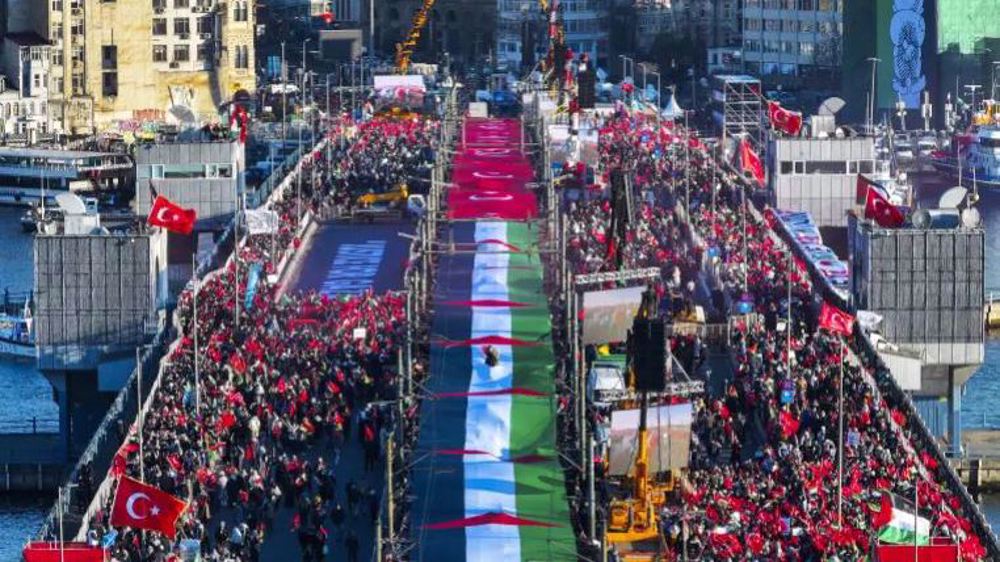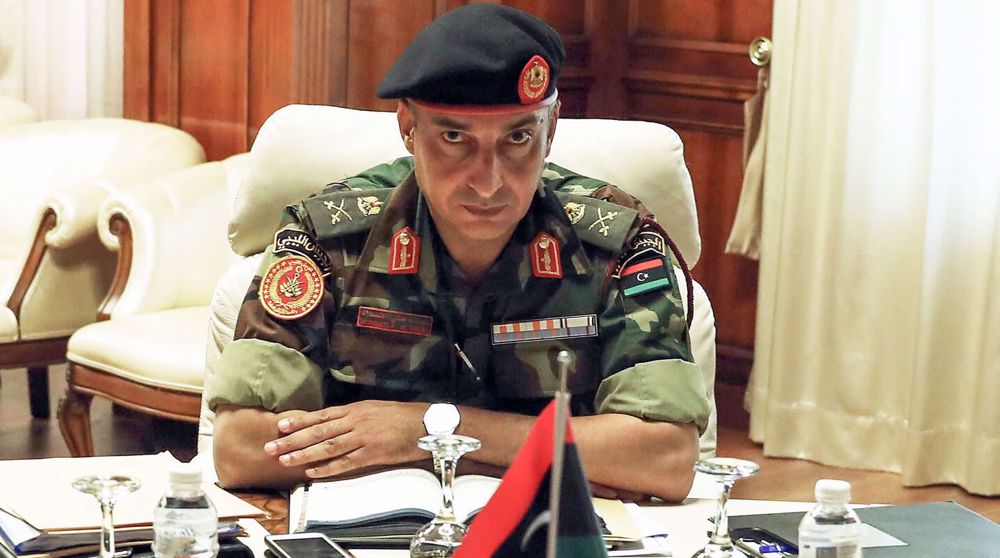Turkey coup detainees tortured, raped: Amnesty
Amnesty International says it has 'credible evidence' that inmates detained after a failed military coup in Turkey have been subjected to torture and abuse.
The Britain-based group said in a report on Sunday that it had received reports that police in the capital Ankara and Istanbul were holding some detainees in "stress positions" for up to 48 hours.
The international rights group also noted that captives were being denied basic necessities such as food, water and medical treatment.
The prisoners were also being threatened and verbally abused at the detention centers, it added.
The report has been based on interviews conducted with lawyers, doctors and one person on duty in a detention facility.
Two lawyers working in Ankara on behalf of the detainees told Amnesty that they had witnessed “senior military officers in detention being raped with a truncheon or finger by police officers.”
Amnesty International’s Europe director, John Dalhuisen, voiced serious concern over violations and abuses.
“Reports of abuse including beatings and rape in detention are extremely alarming, especially given the scale of detentions that we have seen in the past week. The grim details that we have documented are just a snapshot of the abuses that might be happening in places of detention,” Dalhuisen said
"It is absolutely imperative that the Turkish authorities halt these abhorrent practices and allow international monitors to visit all these detainees in the places they are being held,” he added.
Dalhuisen said abuses of human rights are never acceptable in any circumstances, noting, "Turkey is understandably concerned with public security at the moment, but no circumstances can ever justify torture and other ill-treatment or arbitrary detention."
The senior Amnesty official also called for independent monitors to be granted access to detention sites across Turkey.
The Turkish government has rejected Amnesty's report.
"The idea that Turkey, a country seeking European Union membership, would not respect the law is absurd," AFP quoted a senior Turkish official as saying, adding, "We categorically deny the allegations and encourage advocacy groups to provide an unbiased account of the legal steps that are being taken against people who murdered nearly 250 civilians in cold blood."
A sweeping wave of arrests engulfed the Anatolian country in the wake of the abortive coup.
Tens of thousands of soldiers, security officers, judges, prosecutors, civil servants and academics suspected of being connected to the Gulen movement have been detained or suspended from their jobs following the putsch. Fethullah Gulen, a US-based cleric, has been accused by Ankara of orchestrating the coup attempt. He “categorically” rejects the claim.

On July 21, the Turkish parliament approved a bill declaring a state of emergency, which allows Ankara to bypass the legislature in adopting new laws.
In a pre-recorded address broadcast on the national television on Saturday, President Erdogan said that so far, 934 schools, 109 student dorms, 15 universities, 104 foundations, 1,125 charity organization, 35 health institutes and 19 unions have been shut down amid the government’s crackdown on those believed to have played a role in the failed putsch.
The putsch began overnight on July 15, when a faction of the Turkish military declared it was in control of the country and the Ankara administration was no more in charge. Tanks, helicopters and soldiers then clashed with police and people on the streets of the capital and Istanbul.
The coup was gradually suppressed by military forces and people loyal to Erdogan. More than 300 people were killed from both sides, many of them on July 16.
BBC bars use of ‘kidnapping’ to describe Maduro’s kidnapping
VIDEO | International cartoon, poster contest 'Online Terror' unveiled in Tehran
VIDEO | Venezuela installs interim president after US kidnapping of Maduro
Iran FM urges world, UN to voice decisive opposition to attack on Venezuela
VIDEO | Moscow vows revenge
Sanctions slow Iran’s 5G expansion despite growth in network rollout
VIDEO | Chinese, South Korean presidents hold summit amid global outcry against US
Israel pushes to keep Gaza closed to foreign media














 This makes it easy to access the Press TV website
This makes it easy to access the Press TV website